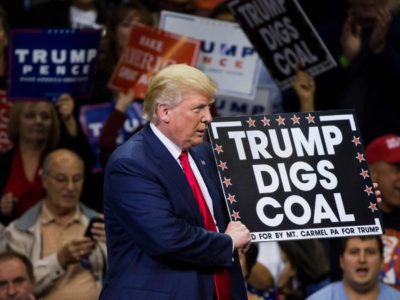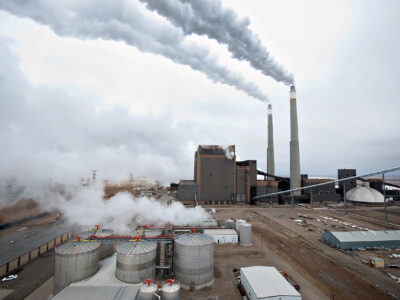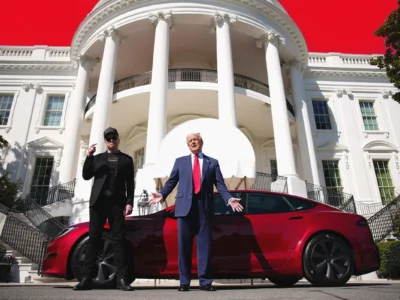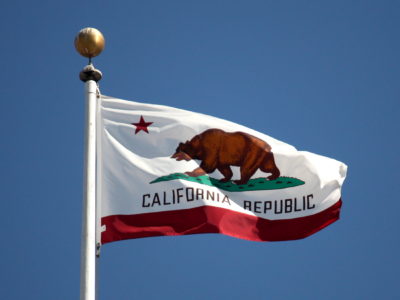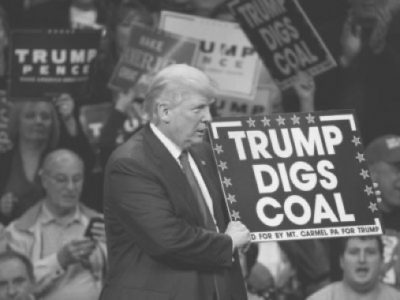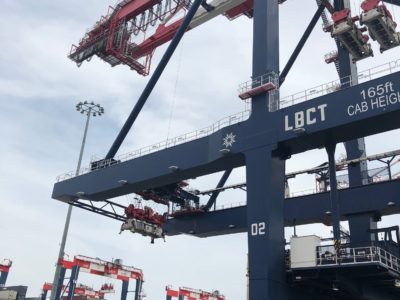Energy
The Emperor’s New Endangerment Theory (Wrap-Up)
Trump’s EPA says carbon emissions from U.S. power plants are too insignificant to regulate.
U.S. power plants emit 1.5 billion tons of carbon dioxide a year, a little less than the entire country of Russia. The Trump Administration is proposing to end all regulation of carbon emissions by power plants, on the theory that these emissions should be considered insignificant. They have some complicated legal arguments , but the arguments break down the more closely you look at them.
CONTINUE READINGThe Emperor’s New Endangerment Theory (Part III)
How did EPA get to the absurd conclusion that 1.5 billion tons of carbon emissions aren’t significant? Well might you ask.
There is a very good chance that a court would strike down a EPA’s current finding that carbon emissions from the U.S. power sector are too insignificant to regulate. EPA’s effort to explain its ultimate conclusion rests on a hodgepodge of poorly analyzed considerations, which obviously have been reverse engineered to lead to EPA’s preferred conclusion.
CONTINUE READINGWhat Have We Learned About Rebuilding from Fire?
Woolsey Fire survivors reflect on the rebuilding process and what might help rebuild more resiliently after the January fires.
When I first met Nicole Fisher in 2019, her property in the Santa Monica Mountains was nothing but a driveway and a pile of cement. I was interviewing the art teacher for a radio story about her family’s plans to rebuild after the 2018 Woolsey Fire that destroyed her home and hundreds of others in …
Continue reading “What Have We Learned About Rebuilding from Fire?”
CONTINUE READINGThe Emperor’s New Endangerment Theory (Part II)
To justify a decision not to regulate CO2 from power plants, EPA had to twist statutory language beyond all recognition.
According to EPA, carbon emissions from the U.S. power sector are too insignificant to warrant regulation. This is a bizarre conclusion: U.S. power sector’s emissions are around 6.5 billion tons, just below Russia’s total emissions from all sectors. To reach this conclusion, EPA has proposed a novel reading of the Clean Air Act. In EPA’s view, before it could regulate those emissions, it would first have to make a formal finding that they “cause or significantly contribute” to climate change, and (2) that this has to be judged on the basis of the sector’s percentage of total global carbon emissions. The statute doesn’t say either of those things.
CONTINUE READINGThe Emperor’s New Endangerment Theory (Part I)
EPA says the electricity sector’s climate impacts aren’t significant. Really??
EPA has proposed a novel reading of the Clean Air Act (CAA) that would foreclose any regulation of CO2 emissions from power plants. EPA’s core argument is that the statute requires it to determine whether an industry’s emissions “cause or contribute significantly” to climate change and that the industry’s carbon emissions don’t meet that standard. …
Continue reading “The Emperor’s New Endangerment Theory (Part I)”
CONTINUE READINGTalking to Skeptics About Clean Energy
Some people will stop listening if you talk about climate change. But there are other arguments.
The dangers of climate change provide excellent reasons to support clean energy. But that argument can be futile — or worse, counterproductive — when listeners don’t take climate change seriously or reject the idea altogether. Fortunately, there are other arguments that may better appeal to them.
CONTINUE READINGCan Public Ownership Fix Our Electricity Woes? It’s Complicated
New UCLA report “Power Struggle: California’s Electric Utility Ownership Dilemma” by Sylvie Ashford, Mohit Chhabra, and Ruthie Lazenby
This post is co-authored by Sylvie Ashford and Mohit Chhabra. California’s investor-owned utilities (IOUs) are under intense scrutiny for causing deadly wildfires and charging some of the nation’s highest electricity rates. Adding to these challenges, IOUs are required to make significant clean energy and grid investments to achieve the state’s goal of a net zero …
Continue reading “Can Public Ownership Fix Our Electricity Woes? It’s Complicated”
CONTINUE READINGLast Year’s Climate Bond May Not Be What You Thought
While investing in important adaptation and resilience measures, Proposition 4 does less to create new clean energy infrastructure investments
Last year, legislators passed, the governor signed, and California voters approved, a ten billion dollar climate bond (the Safe Drinking Water, Wildfire Prevention, Drought Preparedness, and Clean Air Bond Act of 2024, SB 867 (Allen), which appeared on the November ballot as Proposition 4). While the bond act’s full title largely tells the story of …
Continue reading “Last Year’s Climate Bond May Not Be What You Thought”
CONTINUE READINGCan Trump Save U.S. Coal? Not likely.
“Beautiful clean coal”, as Trump calls it, is inexorably declining.
The title of one of Trump’s executive orders is “Reinvigorating America’s Beautiful Clean Coal Industry.” That order says, “it is the policy of the United States that coal is essential to our national and economic security.” But Trump’s efforts seem unlikely to make a dent in the long-term, global malaise of the coal industry, or its sharp decline in the U.S.
CONTINUE READINGCould CA Local Agencies Replicate Past Federal Solicitation Approaches?
Innovative solicitation & contracting approaches may make offshore wind infrastructure projects work better for communities
Offshore wind is a nascent industry in California, and actions by the new federal administration are threatening to slow or halt the significant progress made in recent years. Despite these new federal policies, however, state and local leaders are planning infrastructure needed to launch the sector in California, including port facilities suitable for assembling and …
Continue reading “Could CA Local Agencies Replicate Past Federal Solicitation Approaches?”
CONTINUE READING




